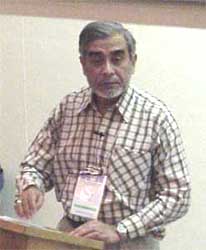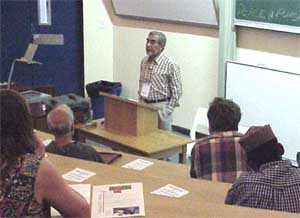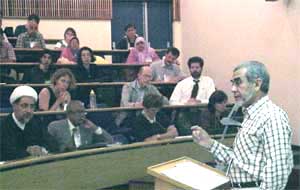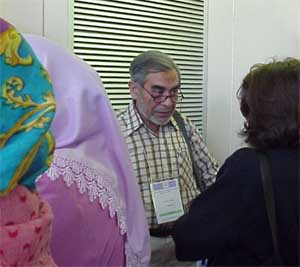|
|
Wylie and Helene Parliament of the World's Religions |
|
Jihad and Human Rights
Prof. Anis Ahmad
Jihad is commonly understood as the use of violence for religious purposes, hence, it is translated as ”holy war.” The Qur’an and the Sunnah use this term is a wider connotation. The Sunnah (practice of the Prophet) is derived from the hadiths (sayings of the Prophet).
The Qur’an and the Sunnah come to us directly from Mohammed, as opposed to the various schools of jurisprudence that have developed over the years. These two original sources are quite explicit concerning human rights. In general these can be expressed as follows:
More specifically:
Moslems are instructed to make sure these human rights are carried out for all moral people, regardless of their religion. Specifically they are instructed to 1) To act to right the wrong. 2) To speak if unable to act. 3) To witness and be conscious of the injustice if unable to speak.
This effort whether in action, speech or consciousness is called Jihad.
Internally, Jihad can take place in one’s own mind to purify one’s moral character and intention.
Externally, Jihad is used to defend your or other’s human rights. This can include cultural, economic and religious liberation and to restore dignity. Jihad does not justify violence when in the offense, only in the defense. A Jihad can be justified against Capitalism when it uses economic colonization to exploit people. Professor Ahmad also said that all Islamic scholars had condemned the Taliban’s denial of human rights to the women of Afghanistan.
|



